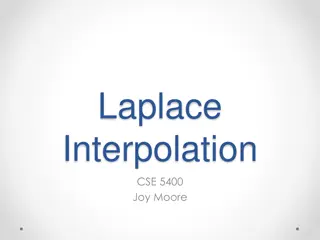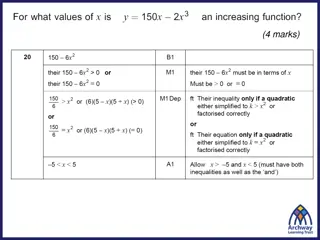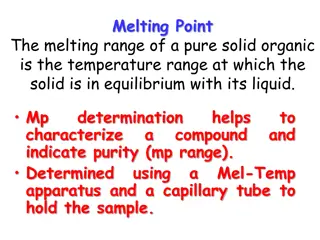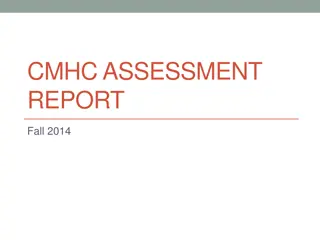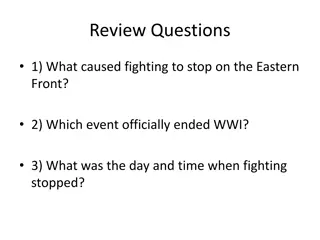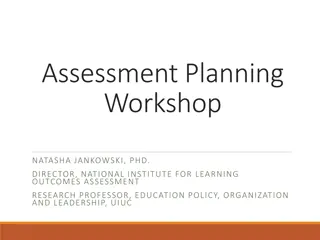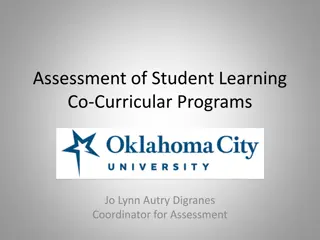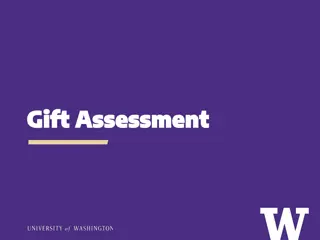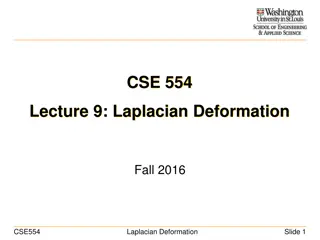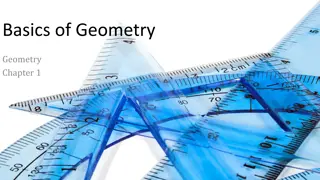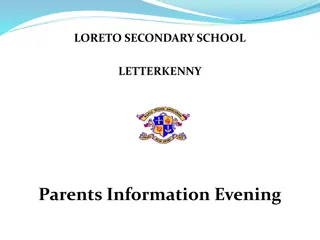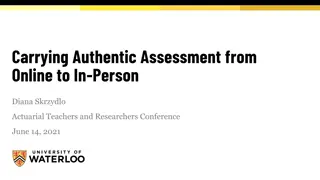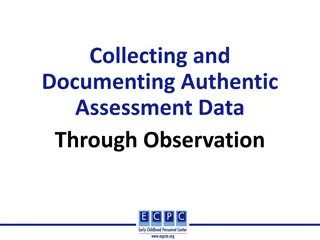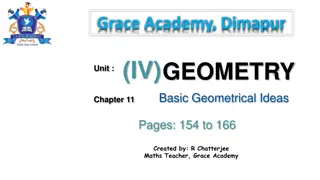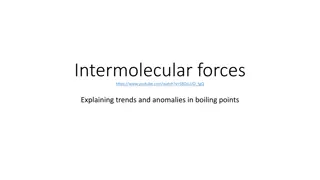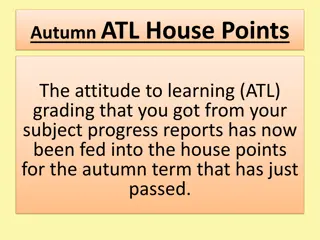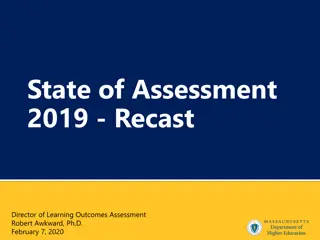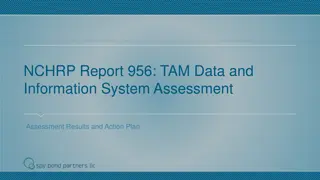Sheffield Early Help Assessment Form Update and Integration with Extended Support Plan
Sheffield has introduced an updated Early Help Assessment form to streamline the assessment process within the Early Help System. This new form combines the Early Help Assessment with the Extended Support Plan, aligning various assessment tools and referral forms into one comprehensive document. The
5 views • 22 slides
Enhancing Language Learning Through Peer Assessment
Explore the benefits of peer assessment as a valuable tool for language learning, comparing it with self-assessment. Discover the components and challenges of self-assessment, along with the potential of peer assessment to improve accuracy and promote self-regulation. Gain insights into what peer as
3 views • 29 slides
Overview of DSW End Point Assessment Team Leader Level 3
DSW End Point Assessment Team Leader Level 3 provides a clear understanding of the assessment process, ensuring individuals comprehend why and when it occurs, responsibilities involved, and how DSW supports them. It covers topics such as what End Point Assessment entails, assessment design and deliv
1 views • 18 slides
Understanding Laplace Interpolation for Sparse Data Restoration
Laplace Interpolation is a method used in CSE 5400 by Joy Moore for interpolating sparse data points. It involves concepts such as the mean value property, handling boundary conditions, and using the A-times method. The process replaces missing data points with a designated value and approximates in
1 views • 13 slides
Understanding Mortgage Points: Calculate, Compare, Decide
Explore the world of mortgage points by learning how to calculate discount points, determine breakeven time, and evaluate if buying points is a wise decision. Through examples, understand how purchasing points can affect your interest rate and overall cost, helping you make informed decisions when f
0 views • 17 slides
Understanding Points of Inflection in Calculus
Points of inflection in calculus refer to points where the curve changes from convex to concave or vice versa. These points are identified by observing changes in the curve's concavity, and they are not always stationary points. A stationary point can be a point of inflection, but not all points of
0 views • 14 slides
Understanding Melting Points in Organic Chemistry
Melting points play a crucial role in identifying compounds and assessing their purity. The melting range of a pure solid organic compound indicates its equilibrium temperature with its liquid form. Impurities can lower the melting point, causing depression and broadening of the melting range. Mixed
9 views • 13 slides
Assessment Report Summary Fall 2014
Data gathered from Fall 2012 to Spring 2014 show significant assessment points reached across terms, with goals met for student grades and evaluations. Results indicate the impact of small class sizes on achieving objectives. Questions and action points focus on balancing evaluations, assignment app
1 views • 6 slides
Understanding Assessment in Medical Education
Exploring the concepts of assessment in medical education, including defining assessment, types of assessment, reliability, validity, and aligning assessment methods with intended learning outcomes. The importance of constructive alignment and the impact of assessment on learning outcomes are also d
1 views • 12 slides
Assessment Matters in Sociology: Enhancing Learning Through Evaluation
Explore the significance of assessment in sociology education, focusing on key questions to evaluate current assessment procedures, review individual course assessments, and develop strategies to enhance student learning outcomes. Delve into the centrality of assessment in the learning process, with
1 views • 15 slides
Woodrow Wilson's 14 Points and the End of WWI
Woodrow Wilson's 14 Points were a series of peace proposals aimed at ending World War I and establishing lasting peace. These points included measures such as ending secret treaties, ensuring freedom of the seas, and promoting self-determination. Wilson's efforts were recognized with the Nobel Peace
3 views • 10 slides
Insights into Managing Assessment in the Classroom by Assessment Research Group
Explore the importance of standards and assessment in education through the lens of the Assessment Research Group. Gain valuable perspectives on curriculum delivery, understanding the assessment system, learner assumptions, task parameters, and more. Discover how language, structure, and agency play
2 views • 25 slides
Workshop on Assessment Planning by Dr. Natasha Jankowski
Dr. Natasha Jankowski, Director of the National Institute for Learning Outcomes Assessment, conducts a workshop focusing on effective use of assessment data to enhance undergraduate education. The workshop covers areas like evaluating assessment plans, program learning outcomes, and assessment rubri
0 views • 30 slides
Enhancing Understanding through Assessment in Educational Design Workshop
Learn and collaborate on assessment practices in education design at the "Understanding by Design Assessment Focus" workshop. The agenda includes sessions on summative and formative assessment, feedback, reporting, and more. Engage in activities like generating questions, finding destination partner
1 views • 76 slides
Understanding Distillation: Methods and Factors Affecting Boiling Points
Distillation is a process used to separate liquids based on their boiling points, with methods like simple, fractional, vacuum, and steam distillation. The boiling point of a compound is influenced by factors such as molecular weight and functional groups, where higher weights and polar groups lead
1 views • 15 slides
Understanding Distillation: Boiling Points and Factors
Distillation is a process of vaporizing and condensing liquids to separate components based on boiling points. This method utilizes differences in boiling points of liquid mixtures to achieve separation. Factors influencing boiling points include molecular weight, functional groups, and intermolecul
0 views • 16 slides
Residence Returning Scheme Points Allocation Guidelines
This document outlines the points allocation guidelines for the Residence Returning Scheme, covering categories such as Academic Excellence, University Contributions, Hall-Based Contributions, and Discipline Deduction. It provides detailed criteria for scoring in each category, including GPA points
0 views • 21 slides
Institutional Assessment Planning Workshop Feedback and Insights
Feedback and insights from a recent institutional assessment planning workshop led by Dr. Mark Nicholas at FSU S. Warren Conference Center & Inn. Participants provided feedback on the usefulness of the content, presenter knowledge, ability to develop assessment plans, post-training assessment knowle
1 views • 9 slides
Assessment of Student Learning in Co-Curricular Programs
This content discusses the importance of assessing student learning in co-curricular programs and outlines principles of good practice for effective assessment. It highlights the systematic collection of information to make informed decisions for enhancing learning outcomes. Key points include the r
4 views • 37 slides
Understanding Higher Education Assessment: The Complete Guide
Higher education assessment involves a systematic process of collecting, reviewing, and utilizing information to improve student learning and development. This guide covers the assessment cycle, learning outcomes, the mission behind assessment in higher education, what assessment is and is not, reas
1 views • 36 slides
Understanding Gift Assessment Process at University of Washington
The Gift Assessment Process at University of Washington involves applying a 5% assessment to select current-use gifts over $1,000 and under $5 million. This assessment supports the university's advancement efforts and institutional priorities by transferring 5% of eligible contributions to the Provo
1 views • 5 slides
Overview of Environmental Impact Assessment and Strategic Environmental Assessment Directives
Environmental Impact Assessment (EIA) and Strategic Environmental Assessment (SEA) play crucial roles in evaluating the impact of planned activities on the environment. This content delves into the concept, origins, development, and key elements of environmental assessment, discussing the legal fram
2 views • 35 slides
Laplacian Deformation in Engineering and Applied Science
Laplacian deformation is a technique used in non-rigid registration to account for shape variance and improve fitting between source and target shapes. This method involves minimizing the distance and distortion terms to achieve accurate alignment. Intrinsic and extrinsic methods are discussed, wher
0 views • 53 slides
Interactive Points-based White Board Review for Social Studies Unit 2
Engage in a points-based review session using images to guess answers related to historical terms such as "Mission," "Abandon," "Treaty," and more. Earn points for correct answers and lose points for incorrect ones as you cover topics like settlements, exploration causes, and historical events.
0 views • 19 slides
Institutional Assessment and Effectiveness Workshop Achievements at SUNY Oneonta
The Office of Institutional Assessment and Effectiveness at SUNY Oneonta has made significant progress in developing assessment protocols and processes, leading to a culture of assessment. This includes completing planning and assessment cycles, establishing objectives and procedures, and aligning u
1 views • 16 slides
Basics of Geometry: Understanding Points, Lines, and Planes
Explore the fundamental concepts of geometry in this slideshow developed to accompany the textbook "Big Ideas Geometry." Learn about points, lines, and planes, their characteristics, how they are named, and their relationships in space. Gain a clear understanding of line segments, rays, collinear po
0 views • 55 slides
Understanding Convex Hulls in Computational Geometry
Convex hulls play a vital role in computational geometry, enabling shape approximation, collision avoidance in robotics, and finding smallest enclosing boxes for point sets. The convex hull problem involves computing the smallest convex polygon containing a set of points, with extreme points determi
0 views • 119 slides
Oregon Department of Education Assessment and Accountability Resources
Access important information on assessments, accountability, and reporting from the Oregon Department of Education. Find resources on updating assessment records, accessing student scores, and staying informed about assessment requirements for the 2023-24 academic year. Explore links for assessment
0 views • 55 slides
Oregon Department of Education - Assessment Resources and Updates
Explore the Assessment Record Updating Application (ARUA), Accountability Warehouse Extract (AWE), Secure Assessment Reports, and other important tools and information provided by the Oregon Department of Education for assessment data owners, analysts, and partners. Access links for assessment admin
0 views • 54 slides
Loreto Secondary School Parents Information Evening Summary
Loreto Secondary School in Letterkenny conducted a Parents Information Evening covering important topics such as the points system, CAO, HEAR/DARE, UCAS, Leaving Certificate points, grades, bonus points for Mathematics, and matriculation requirements for various institutes. The presentation outlined
0 views • 64 slides
Enhancing Teaching Assessment for Actuarial Education
Exploring the transition of assessment practices from online to in-person settings, this presentation by Diana Skrzydlo at the Actuarial Teachers and Researchers Conference delves into the purpose of assessment, key principles, and activities for effective evaluation. Discover insights on diagnostic
0 views • 10 slides
Authentic Assessment through Systematic Observation: Best Practices
Explore the process of authentic assessment through systematic observation in early childhood education. Learn about collecting, documenting, and interpreting assessment data using evidence-based practices and technology. Discover the importance of working collaboratively with families and professio
0 views • 53 slides
Introduction to Points, Lines, and Planes in Geometry
Exploring the fundamental concepts of points, lines, and planes in geometry, including definitions, examples, and postulates. Learn about collinear points, coplanar points, segments, rays, and key postulates in geometry.
0 views • 18 slides
Largest Red-Blue Separating Rectangles Study
This study explores the problem of finding the largest area axis-aligned B-empty rectangle containing n red points and m blue points. The research discusses various extensions to the original problem, such as the Blue Rectangles problem and the Outliers Problem, aiming to achieve efficient solutions
0 views • 20 slides
Understanding Basic Geometrical Ideas in Geometry
Basic Geometrical Ideas in Geometry cover the fundamental concepts of points, lines, and planes. Points are described as having location but no size, lines are infinite sets of points, and collinearity is discussed. The importance of straightness in lines is assumed but not defined. Symbols and nota
0 views • 45 slides
Indian Housing Block Grant 2023 Competitive Priorities
The Fiscal Year 2023 Indian Housing Block Grant (IHBG) Competitive NOFO Training focuses on Soundness of Approach with a maximum of 42 points. Subfactor 3.1 emphasizes IHBG Competitive Priorities, including new housing construction projects, housing rehabilitation projects, acquisition of units, and
0 views • 23 slides
Understanding Boiling Points and Intermolecular Forces
Exploring the relationship between intermolecular forces and boiling points, this content discusses trends and anomalies in boiling points of halogens, isomers with the same molecular formula, molecules with similar Mr, and polar molecules. It explains how molecular size, structure, and interactions
0 views • 5 slides
Autumn ATL House Points Distribution for School Year Groups
The attitude to learning (ATL) grading from subject progress reports has been incorporated into house points for the autumn term. Students receive points based on their ATL grades, with opportunities for additional points. The top-scoring houses are awarded points accordingly for each year group. Th
0 views • 13 slides
Assessment Practices in Higher Education Institutions
Dive into the state of assessment for the year 2019, featuring insights on hosting assessment days, establishment of assessment committees, implementation of institutional and program learning outcomes, appointment of a Director of Assessment, compensation for faculty members focusing on assessment,
0 views • 8 slides
NCHRP Report 956 TAM Data and Information System Assessment
This content provides an overview of NCHRP Report 956 focusing on the TAM data and information system assessment results and action plan. It includes details on assessment outcomes, recommendations, implementation action plans, and tools for self-assessment and improvement methodology. The content a
0 views • 21 slides



